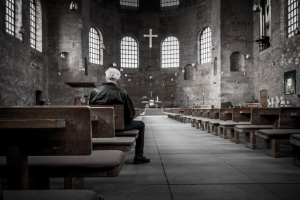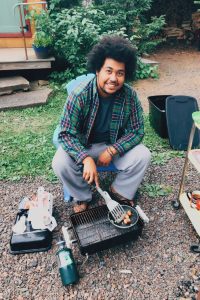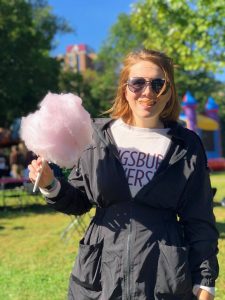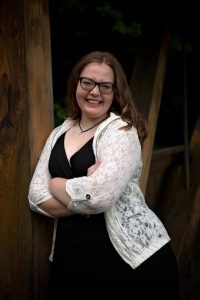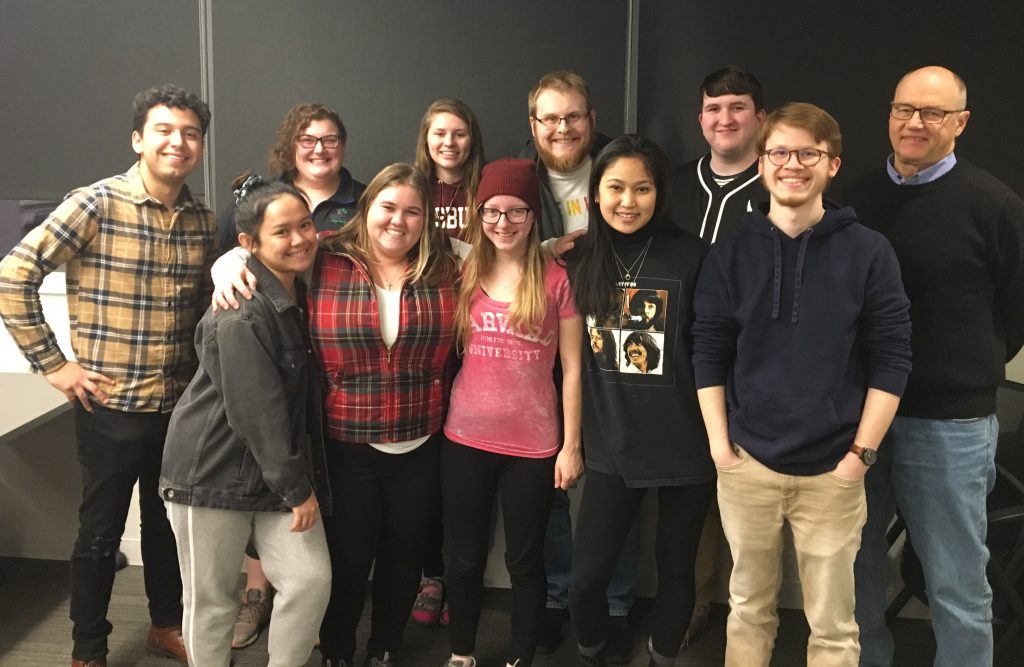Today’s blog post comes from the sermon that Amanda Vetsch preached on John 21:1-14 in chapel at Augsburg University on March 11th. To listen to the sermon, click the Sound Cloud audio link. The Scripture text can be found below the link and the transcript of the sermon can be found below the Scripture reading.
After these things Jesus showed himself again to the disciples by the Sea of Tiberias; and he showed himself in this way. Gathered there together were Simon Peter, Thomas called the Twin,Nathanael of Cana in Galilee, the sons of Zebedee, and two others of his disciples. Simon Peter said to them, “I am going fishing.” They said to him, “We will go with you.” They went out and got into the boat, but that night they caught nothing. Just after daybreak, Jesus stood on the beach; but the disciples did not know that it was Jesus. Jesus said to them, “Children, you have no fish, have you?” They answered him, “No.” He said to them, “Cast the net to the right side of the boat, and you will find some.” So they cast it, and now they were not able to haul it in because there were so many fish. That disciple whom Jesus loved said to Peter, “It is the Lord!” When Simon Peter heard that it was the Lord, he put on some clothes, for he was naked, and jumped into the sea. But the other disciples came in the boat, dragging the net full of fish, for they were not far from the land, only about a hundred yards off. When they had gone ashore, they saw a charcoal fire there, with fish on it, and bread. Jesus said to them, “Bring some of the fish that you have just caught.” So Simon Peter went aboard and hauled the net ashore, full of large fish, a hundred fifty-three of them; and though there were so many, the net was not torn. Jesus said to them, “Come and have breakfast.” Now none of the disciples dared to ask him, “Who are you?” because they knew it was the Lord. Jesus came and took the bread and gave it to them, and did the same with the fish. This was now the third time that Jesus appeared to the disciples after he was raised from the dead. John 21:1-14
I originally picked this reading because it’s one of my absolute favorite stories in the bible. It’s one I often go to to remember my “why.”
Why I continue to show up everyday, why I do the work that I do and study the things that I study, and why I continue to hold on to a Christian Tradition and belief system that has a found itself so interwoven with white supremacy and cis-hetero-patriarchy that it sometimes hard to see, hear, and feel the gospel through all those layers.
This story has 2 of my favorite things about the Gospel message:
- It’s got enoughness and it’s got food.
- it gets at “enoughness” in that’s its a post-resurrection occurrence and in the huge haul of fish, more than they could even draw in
- And food – it shows us how simple and sacred it is to share a meal together. Also, I really love breakfast and the image of sitting on a beach eating breakfast with Jesus. How wonderful is that?
I’m being honest, I picked this reading in the hopes that, if I picked something that I was already pretty familiar with, it would be super easy to just slap a sermon together. As it turns out, that wasn’t the case. And I probably shouldn’t just slap something together up here.
So as I sat with the text I just kept coming up with more questions. The questions ranged from silly to complex, like:
- Did a resurrected Jesus’s body really need to eat breakfast, or was he preparing it for the disciples?
- Why did Peter put his clothes on to jump into the water? And why was he naked?
- Where did the fish that Jesus was cooking before the disciples came to shore come from?
- Did fisher people usually sit together and eat breakfast after being out at sea?
- Did people on the shore usually call out to the fisherpeople and tell them where to fish or was this a weird Jesus trust thing?
- And my biggest question, what does it mean to practice enoughness or a theology of abundance in the season of lent?
While all of those questions would be fascinating to wonder about, I’m going to spend this time on the last one. So first, let me explain the pieces of that question that might be confusing and then I’ll wonder about it with you all.
What do I mean by enoughness?
I mean the belief that there is more than enough, that through God’s promises, we have more than enough, we are more than enough, and we can hope for a better tomorrow. I see this enoughness as a core theme throughout the whole biblical narrative, God shows unending generosity to humankind. I see it in the stories of God providing manna while the Israelites were wandering in the desert, I see it in the parables that Jesus told, especially in the story of the workers who all worked a different amount of time and got paid the same at the end of the day, and in the story of the resurrection. Death is real, and it isn’t final.
And if none of the biblical references made it any clearer, What might a theology of abundance look like in our context today: It’s trusting that we only need the resources we will use, we don’t need to hoard hand sanitizer or soap.
So now that we have a better idea of what I mean by abundance, what do I mean by Lent?
In many mainline Christian Traditions, we are currently in the season of Lent. That means, throughout the year, we follow the story of Jesus and right now we are at the part of the story before Jesus’ death and before Easter. This season is a time to prepare for Easter, to repent, and to remember. Many people do this by fasting. Sometimes that means fasting from food, sometimes it means fasting from something, or maybe it means adding a new spiritual habit thing in. One example is from the ELCA Young Adults is to fast from single use plastics. This season is a season that is often somber, quiet, and simple. The invitation at the beginning of the season, on Ash Wednesday, is to remember that you are dust and to dust you shall return.
How do we hold both of these things at the same time:
- A belief in abundance and enoughness
- In a season of remembering and repentance
Here are two ways I think we can do that.
First, remember. Remember that there is enough. I can fast from hoarding. I can fast from fear. I can fast from hopelessness. I can fast from all of those things because I believe in a God that has, does, and will generously provide for humankind.
Second, Repent. For me, I’m going to be better repenting if I am rooted in God’s promises of enoughness. What does that mean? While clinging to the promise that I am beloved, I can be more open to repenting from the ways in which I have caused harm. In the ways I haven’t always been kind, the times I caused harm to the earth when there were less harmful options, the times I talked over someone else, the times I didn’t listen, the times I consciously or unconsciously assumed my white body was more important than a black, brown, or indigenous body, the times that I remained complicit. For me, if I’m not rooted in a promise of enoughness, the invitation to repentance might actually end up as a trip and tumble into a deep pit of guilt and shame and that’s not the point of repentance. Repentance is to turn away, it is NOT to turn into myself, but to turn away from the ways that I have caused harm and remember that as a beloved Child of God I am called and freed to live in repariative ways that bring good news to my neighbor.
And these two examples are on the individual level, what might it look like if our communities, cultures, and countries remembered and repented? So I will leave you with that, for you, What might it look like to embody a belief of enoughness in a season of remembering and repenting?

